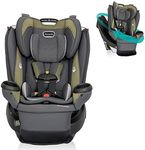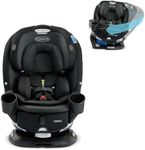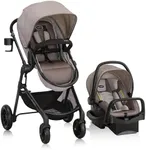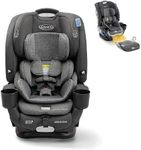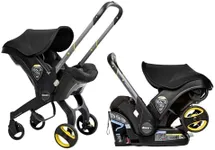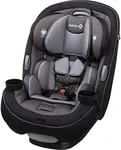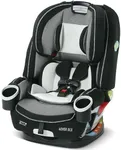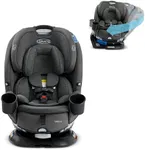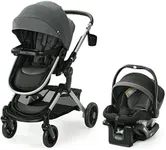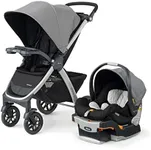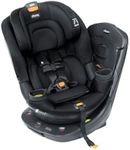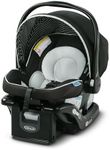Buying Guide for the Best Newborn Car Seats
Choosing the right newborn car seat is crucial for the safety and comfort of your baby. It's important to consider various factors to ensure that the car seat you select meets your needs and provides the best protection for your little one. Here are some key specifications to consider when picking a newborn car seat, along with explanations to help you make an informed decision.Safety StandardsSafety standards are regulations that car seats must meet to ensure they provide adequate protection in the event of a crash. This is the most important spec because it directly impacts your baby's safety. Look for car seats that meet or exceed safety standards set by organizations such as the National Highway Traffic Safety Administration (NHTSA) or the European Safety Standard (ECE R44/04). Ensure the car seat has been tested and certified for safety.
Weight and Height LimitsWeight and height limits indicate the range of sizes that the car seat can safely accommodate. This is important because using a car seat that is too small or too large for your baby can compromise safety. Newborn car seats typically have weight limits ranging from 4 to 35 pounds and height limits up to 32 inches. Choose a car seat that fits your baby's current size and allows for some growth.
Ease of InstallationEase of installation refers to how simple it is to securely install the car seat in your vehicle. This is important because a properly installed car seat is essential for safety. Car seats can be installed using either the vehicle's seat belt or the LATCH system (Lower Anchors and Tethers for Children). Look for car seats with clear instructions, easy-to-use features, and indicators that confirm correct installation. Consider your vehicle's compatibility with the car seat's installation method.
PortabilityPortability refers to how easy it is to carry and move the car seat. This is important if you plan to frequently transfer the car seat between vehicles or use it as a carrier. Newborn car seats can vary in weight, with some being lighter and easier to carry. Consider your lifestyle and how often you will need to move the car seat. A lighter, more portable car seat may be more convenient for active families.
Comfort FeaturesComfort features include padding, head support, and adjustable harnesses that enhance your baby's comfort during travel. This is important because a comfortable baby is less likely to fuss and more likely to enjoy car rides. Look for car seats with ample padding, adjustable headrests, and harnesses that can be easily adjusted as your baby grows. Consider your baby's comfort needs and any specific features that may help keep them content.
Compatibility with StrollersCompatibility with strollers refers to whether the car seat can be easily attached to a stroller to create a travel system. This is important for convenience, especially if you plan to use the car seat for both car travel and as part of a stroller system. Check if the car seat is compatible with your existing stroller or if it comes with adapters for various stroller models. Consider your need for a seamless transition between car and stroller.
Durability and MaterialsDurability and materials refer to the quality and longevity of the car seat. This is important because a well-made car seat will provide reliable protection over time. Look for car seats made from high-quality, durable materials that can withstand regular use. Consider the car seat's construction, fabric quality, and any additional features that enhance durability. Choose a car seat that will last through your baby's early years and potentially for future siblings.
